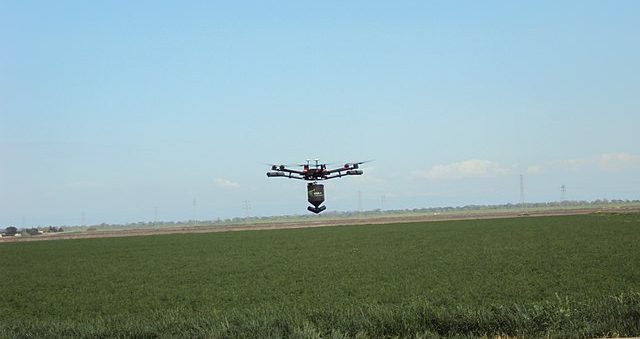Farmers in the Maghreb have embraced the use of drones to conserve water amid drying up wells. This machine-learning technology has come in timely fashion across North Africa, whose nations are now among the 33 most water-starved, globally.
Tunisia, which is currently experiencing long-term drought, could save 30% of conventional water use in orange orchards via drones. Farmers already practicing the technology are priding on exact spraying, which is not only saving water but improving yields.
Tunisia’s farmers’ transition to drones is an inevitable outcome of climate change. While in the past it was easy to predict rain patterns, the ongoing 8-year drought has impacted on such forecasts. Even rains appear in summer, which is uncommon for the Maghreb, and farmers overuse water for lack of proper measuring technology.
One such water-and-soil measuring technology provider is RoboCare. This robotic company by a daughter of Tunisian agronomists helps farmers survey plants from aerial camera shots. Data from the inspection can help farmers to spray the exact amount of pesticides right from the flying drone.
Hibri Negrib, the 35-year old woman founder of RoboCare says that drone technology can save around 20% of pesticides’ cost. The tech also boosts the yields of crops by 30%, as it nourishes them by their optimum moisture and nutritional demands.
Spare water use is relevant for 2023 in Tunisia, a year when dam water levels have dipped to only 22%.
Dams are the main source of drinking and cultivation water in the country, hence the need to keep them in operation.
3% of Farmers in Morocco Using Drones
In Morocco, at the heart of the Arab Maghreb, 3% of a 2-million farming base is using drones. This is despite a government ban on drone use, compounded by a lengthy licensing process for commercial application.
Loubna El Mansouri of the digital centre of Morocco’s Ministry of Agriculture told AFP that drones can direct water right on target. This targeted spraying leads to negligible moisture loss.
While it takes 300 liters to irrigate a hectare the traditional way, a drone sprinkles “less than 20 liters,” says El-Mansouri.
Agriculture is 13% of Morocco’s Gross Domestic Product (GDP) and accounts for 14% of all national exports. The main cultivation method is irrigation for lack of sufficient rain. The country prides in its tomato crop, which consumes much of the extant irrigation water. The country exported $1.12 billion worth of tomato produce in 2022.
In a word, Maghreb countries are at a crossover moment with a water-saving drone technology that is changing farming livelihoods.
